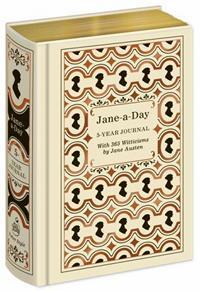“In her novels Jane Austen brilliantly portrayed the lives of the middle and upper classes, but barely mentioned the cast of characters who constituted the bulk of the population. It would be left to the genius of the next generation, Charles Dickens, to write novels about the poor, the workers and the lower middle classes. His novel A Tale of Two Cities starts with celebrated words: ‘It was the best of times, it was the worst of times, it was the age of wisdom, it was the age of foolishness, it was the epoch of belief, it was the epoch of incredulity, it was the season of Light, it was the season of Darkness, it was the spring of hope, it was the winter of despair.’ This is a succinct summary of Jane Austen’s England, on which we are about to eavesdrop.” p. xxvi
 A review by Shelley DeWees
A review by Shelley DeWees
You’ve been warned. Should you wish to maintain the sanctity of your internal imagery of Jane Austen, turn back now, before you step into the not-so-forgiving light of real history. Do thoughts of frocks and frolicking and tea cakes and rainbows seen through the thin gauze of parasols really blow your skirt up? Wishing you could be amongst the ladies and gents of an Austen ball? Hoping against hope that somehow, magically, you could be transported into Jane’s idyllic agrarian life?
Jane Austen’s England, in all its cool clarity and detail, is probably not where you should look for inspiration, and may in fact leave you reeling; your perfect imaginary life forever ruined! The humanity of it!
But if you’re still with me (and I hope you are), prepare yourself for an eye-opening journey, most especially if this is your first foray into the real daily experiences of English Austen life. You’re in for more than a few surprises. Those who have already dabbled in history will find themselves going, “Huh! Really?” often enough, too! Don’t believe me? Behold the following snippets that stupefied me, an Austen lover well versed in the ways of history who, even still, wasn’t at all prepared:
- Able-bodied men were constantly worried about being forced to join the Royal Navy. Many thousands were dragged out of their lodgings and off the streets, fitted for a uniform, and directed toward the nearest ship despite having foreign citizenship and the passports to prove it. A rude way to wake up indeed, and ruder still if you found yourself fighting against your own country. Score one for England!
- Jane Austen’s visits to her brother’s fashionable London apartment took place only blocks away from unspeakable squalor. Traveling there, she would have undoubtedly passed at least a few decomposing corpses strung up alongside the road as a warning to criminals. Seeing as how death was the penalty for almost every crime, even trivial ones, sights such as these were commonplace but probably still fairly distracting.
- In an effort to free the local parish from the unwanted costs of raising illegitimate children, the pregnant woman was compelled, under the Bastardy Act (giggles!) of 1733, to name the father of her child, who then had the choice to either pay the church for the upkeep of the kid or to go to jail. Barring the ability or desire to do one of those things, he could choose to marry the lady, or run away. A perfect beginning to a perfect marriage, it would seem. Extremely desirable, right?
Candles smelled like the slaughterhouse, income gaps between rich and poor were
ridiculous, and medical staff were almost hysterical in their ineptitude. But, all of this is ignored in Jane’s masterpieces, swept under the rug along with the burned remains of last year’s dress that, oops, accidentally set on fire (small price to pay for sitting in the part of the room with a temperature above 30 degrees, because seriously, that corner over there is literally frozen). Austen’s works were created by a lovely lady who, despite her apparent grace, must’ve been stinky beyond all comprehension. And even though it hurts to say it, she probably, just like the rest of her monied comrades, possessed an excessive amount of free time and thus, led an epically idle lifestyle. I suppose it’s no great astonishment that she chose to leave that kind of information out.
Oh, it stings, but it stings so good. While this beautiful, impeccably-researched volume will rob you of your fancies, it leaves in their place a much more interesting and dynamic picture of Austen’s life and times. Never will you have more appreciation for Jane until you fully understand the world she occupied while spinning peaceful, blissful tales of country life, tales that always, somehow, end just the way they’re supposed to despite being outlined on a napkin in the back of a filthy carriage, squelching through 3 inches of mud.
Jane Austen’s England is the first book to address the daily lives of Austen’s contemporaries, stocked full of interesting facts and firsthand accounts (those of governess Nelly Weeton are particularly intriguing). The considerable skills of Mr. and Mrs. Adkins have never been put to better use, something which will become obvious after you stroll brightly from cradle to grave through marriage, child-rearing, fashions and filth, sermons and superstitions, and wealth and work. You’ll be clinging to your wool socks and smartphone like never before. Also, inquisitive researchers and flippant dabblers alike will find lots of goodies lingering in the back pages: a chronological overview, chapter-by-chapter notes, a full index, and a dazzling bibliography all await.
So pull up your petticoats and start trudging through the mess, because the real world is truly an amazing place, even more amazing that Jane Austen was a part of it all.
Jane Austen’s England will leave you dumbfounded! And for those of you who fear the lamentable loss of your Regency idealism, don’t worry, there’s always Colin Firth.
This book was published in the UK as Eavesdropping on
Jane Austen's England: How Our Ancestors Lived 200 Years Ago and republished in the United States as
Jane Austen's England. It can be purchased in either format
- List Price: £20.00/$27.95
- The Viking Press (2013)
- Hardcover (448) pages
- ISBN: 978-0670785841
Originally from Montana, Shelley DeWees is a Professor of English at Hankuk University of Foreign Studies and a confessed lover of all British literature (though her writings would lead you to believe she's a bit Jane-obsessed...an assumption she wouldn't work too hard to thwart). Her writings and reviews have been seen on Austenprose, Jane Austen's World, and Jane Austen Today, as well as in several periodicals, both scholarly and popular. This review originally appeared on Austenprose and is used here with permission.
 A review by Shelley DeWees
You’ve been warned. Should you wish to maintain the sanctity of your internal imagery of Jane Austen, turn back now, before you step into the not-so-forgiving light of real history. Do thoughts of frocks and frolicking and tea cakes and rainbows seen through the thin gauze of parasols really blow your skirt up? Wishing you could be amongst the ladies and gents of an Austen ball? Hoping against hope that somehow, magically, you could be transported into Jane’s idyllic agrarian life? Jane Austen’s England, in all its cool clarity and detail, is probably not where you should look for inspiration, and may in fact leave you reeling; your perfect imaginary life forever ruined! The humanity of it!
But if you’re still with me (and I hope you are), prepare yourself for an eye-opening journey, most especially if this is your first foray into the real daily experiences of English Austen life. You’re in for more than a few surprises. Those who have already dabbled in history will find themselves going, “Huh! Really?” often enough, too! Don’t believe me? Behold the following snippets that stupefied me, an Austen lover well versed in the ways of history who, even still, wasn’t at all prepared:
A review by Shelley DeWees
You’ve been warned. Should you wish to maintain the sanctity of your internal imagery of Jane Austen, turn back now, before you step into the not-so-forgiving light of real history. Do thoughts of frocks and frolicking and tea cakes and rainbows seen through the thin gauze of parasols really blow your skirt up? Wishing you could be amongst the ladies and gents of an Austen ball? Hoping against hope that somehow, magically, you could be transported into Jane’s idyllic agrarian life? Jane Austen’s England, in all its cool clarity and detail, is probably not where you should look for inspiration, and may in fact leave you reeling; your perfect imaginary life forever ruined! The humanity of it!
But if you’re still with me (and I hope you are), prepare yourself for an eye-opening journey, most especially if this is your first foray into the real daily experiences of English Austen life. You’re in for more than a few surprises. Those who have already dabbled in history will find themselves going, “Huh! Really?” often enough, too! Don’t believe me? Behold the following snippets that stupefied me, an Austen lover well versed in the ways of history who, even still, wasn’t at all prepared:



Leave a comment
This site is protected by hCaptcha and the hCaptcha Privacy Policy and Terms of Service apply.